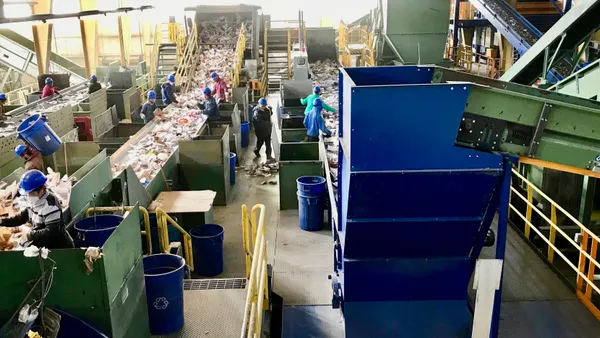Dive Brief:
- A recent Supreme Court decision stating that manufacturers cannot maintain perpetual patent rights once their products are sold, domestically or internationally, has been chalked up as a major victory for repair advocates. The case determined whether small company Impression Products had the right to refill and resell empty printer cartridges made by Lexmark International. The justices ruled in favor of Impression's position 7-1, with partial dissent from one justice on international patent applications, as reported by The New York Times.
- Chief Justice John Roberts wrote the majority decision, outlining the stance that patent rights "exhaust," and used a car repair analogy to make his case. "The business works because the shop can rest assured that, so long as those bringing in the cars own them, the shop is free to repair and resell those vehicles. That smooth flow of commerce would sputter if companies that make the thousands of parts that go into a vehicle could keep their patent rights after the first sale," he wrote.
- In an editorial for Wired and an interview with E-Scrap News, iFixit CEO Kyle Wiens said the decision was a key step in the debate over repairing consumer electronics and other equipment. Though Wiens also noted that companies still have multiple ways to impede these efforts, such as end user license agreements.
Dive Insight:
This decision's potential to reduce the high prices of printer ink will be welcomed by consumers and office managers alike, but its implications in the broader patent and repair discussion are what drew so much attention. Dell, Intel, Costco and others filed briefs in support of Impression's position. Dolby Laboratories, Nokia and others instead defended Lexmark. Though the recycling industry didn't take such public positions, this decision will have an effect on the e-waste conversation as well.
In an effort to preserve their market share, consumer electronics manufacturers have intentionally made it harder to refurbish or effectively dismantle their products. Companies such as Apple prefer to control the process and have consistently opposed efforts to open it up to the public. Yet if devices were designed with accessible parts, or companies provided the necessary schematics and tools, electronics recyclers could keep much more valuable material from going to waste.
The Institute of Scrap Recycling Industries (ISRI) has adopted a "right to reuse" policy for many of these reasons and "right to repair" legislation is now under consideration in 12 states. While advocates of these policies have faced stiff opposition so far, they often point to similar changes in the automotive industry as a sign of what is possible and have begun to gain more attention. This new Supreme Court decision could help give their cause additional momentum and raise awareness among the state legislators who could decide its fate next.









